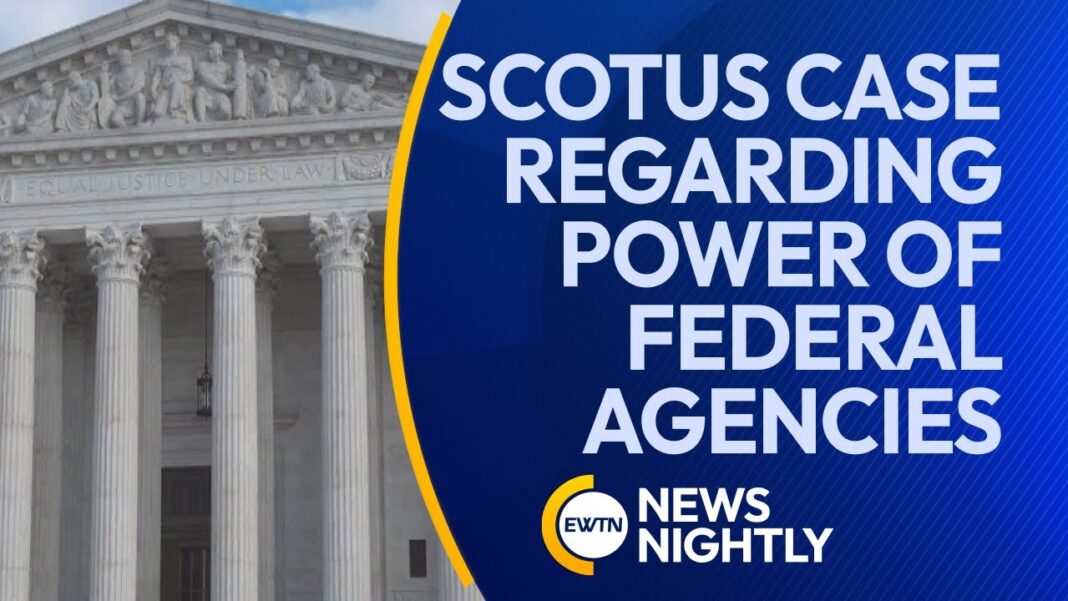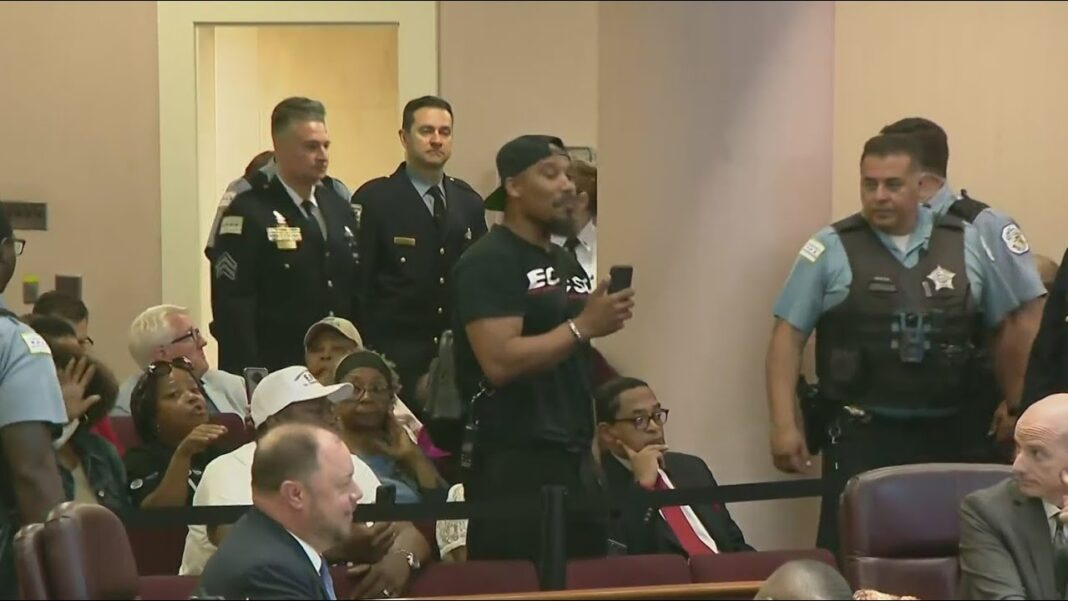The recent decisions by the conservative U.S. Supreme Court (SCOTUS) at the end of its 2024 term are of significant importance in the realm of regulatory reform. These landmark rulings, which end judicial deference of agency decisions and require jury trials when agencies seek penalties, mark a pivotal moment in the fight against the regulatory powers that have shaped the modern Administrative State. They are a continuation of the court’s 2022 decision on the Major Questions Doctrine, which mandates that agencies provide statutory support when making significant changes to a long-standing regulatory policy. Together, these three cases represent a ‘Glorious Regulatory Reform Revolution.’
It’s crucial to remember, however, that a prior liberal/Progressive SCOTUS created the regulatory powers of the Administrative State. These court-created powers lasted for many decades and greatly diminished Congress’s powers to control the Administrative State.
To prevent a return to an all-powerful, court-sanctioned Administrative State, it is imperative that Congress seizes this period of anticipated regulatory sanity to codify and expand the court’s decisions. The role of congressional action in preserving this victory cannot be overstated. After being absent from the regulatory reform debate for decades, Congress must now actively protect the benefits of these recent decisions.
The three SCOTUS decisions are excellent examples of how, in the absence of Congress, the federal judiciary can allow regulators to take on the trappings of a “Star Chamber” that can only be dismantled by a future court.
In Loper Bright Enterprises v. The Secretary of Commerce, the court reversed the forty years of deference courts gave to federal agencies under Chevron vs. NRDC. Chevron’s legal and economic impact is gargantuan. At the time of the Chevron decision in 1984, the federal bureaucracy had issued approximately 65,000 regulations since the beginning of the Administrative State. After Chevron, the tentacles of the Administrative State expanded to control almost every aspect of society, including the products made, the information provided, and the energy it used. By 2023, the bureaucracy had issued 215,500 regulations costing the economy approximately $2 trillion to implement annually.
The courts dutifully applied Chevron’s deference. Seventy future SCOTUS decisions relied upon it, and it was cited in 17,000 lower court decisions. By removing agency deference, SCOTUS returned agency rulemaking power to Congress’s original intent, formulated in its Administrative Procedure Act (“APA”)—that judges, not bureaucrats, make independent interpretations of the law.
In the second case, SEC vs. Jarkesy, the court struck down the power of federal agencies to act as regulators, judges, and executioners, which could impose substantial civil penalties without providing the defendant’s Seventh Amendment right to a jury trial.
While Jarkesy sought judicial review in a federal court, the SEC forced him to adjudicate the matter in-house. The agency’s administrative law judge levied a $300,000 fine on Jarkesy and ordered the disgorgement of $685,000 in illicit profits for violations of the anti-fraud provisions in federal securities law. Jarkesy petitioned the Fifth Circuit Court of Appeals for judicial review, arguing that he had the right to a jury trial since the SEC sought penalties. The federal appellate court agreed with Jarkesy.
The Supreme Court upheld the appellate court’s finding. It is reasoned that when an agency seeks to impose civil penalties, the action is in the nature of punishment. Since punishment at common law was imposed by courts holding jury trials, Jarkesy was entitled to a jury trial.
The ruling in Jarkesy is significant because federal agencies hire several thousand ALJs to hear evidence and make judicial decisions. These administrative proceedings are very costly to defendants but are more comfortable for agencies since the outcome is determined by their paid-for, in-house “judges.”
Loper and Jarkesy build upon WVA v. EPA, the case in which SCOTUS formulated its Major Questions Doctrine requiring an agency to establish statutory authority when transforming long-standing policy into a dramatically new one. EPA historically applied section 111 of the Clean Air Act only to specific energy sources at particular locations. Suddenly, the EPA “discovered new authority” and authorized itself to determine what types of electrical power could be generated and distributed to the nation. SCOTUS found that EPA lacked the statutory authority to transform its facility-by-facility approach to clean air regulation into the power to regulate the entire electricity grid. The critical aspect of its ruling is that when federal agencies suddenly change long-established policies, the agency must prove Congress granted them such authority.
In the three cases, SCOTUS reversed long-established positions that agencies could fill in the legislative blanks in the law, force citizens into trials controlled by agency-paid judges, and unilaterally extend regulatory powers to “newly discovered activities.”
The dramatic change in the court’s judicial philosophy exhibited a newfound respect for Congress as it searched for its congressional intent or any constitutional support for agency activity
For those familiar with our Constitution and congressionally written laws, it’s clear that vagueness is omnipresent in most texts. This understanding should raise concerns about the potential for a future SCOTUS with a liberal/Progressive majority to reverse the current limits. Such a reversal could allow agencies to once again operate as unsupervised lawmakers, thereby potentially making them supreme in the lawmaking process. This potential imbalance underscores the need to preserve the recent SCOTUS decisions.
While conservative Republicans in Congress for decades voiced concerns over the growth of the regulatory state, they could not secure the votes to restrain the system created by the liberal/Progressive SCOTUS.
Only the 115th Congress seriously attempted to reform the APA and, by implication, the Administrative State through the proposed Regulatory Accountability Act (“RAA”). The RAA sought to reform the rulemaking process to ensure final rules were based on sound facts and law, inadequate science could be challenged, major rules were subject to on-the-record hearings with cross-examination, and courts, not regulators, interpreted the law.
The House passed the RAA several times. A Republican Senate even voted it out of committee; however, Senate leadership under Mitch McConnell, a patron of the Administrative State, refused to bring the legislation to the floor. This effort was Congress’ first and last serious attempt to reform the Administrative State since its creation in 1946.
In the final analysis, agencies will fight to the last rulemaking proceeding to expand their regulatory powers. The Biden administration recently proved the truth of the assertion by forgiving additional student loan debt after a conservative SCOTUS declared such actions beyond the powers granted to the Executive by Congress. While the current SCOTUS has significantly limited the power of agencies to make new laws without congressional authority, a future liberal/Progressive court could reverse these limits. It is up to Congress to place statutory limitations on an agency’s power to make laws without authority from Congress. Such action is necessary if Congress is to reclaim and retain its constitutional role as the nation’s sole legislative authority.
William L. Kovacs, author of Devolution of Power: Rolling Back the Federal State to Preserve the Republic. Received 5 stars from Readers’ Favorite. His previous book, Reform the Kakistocracy, received the 2021 Independent Press Award for Political/Social Change. He served as senior vice president for the U.S. Chamber of Commerce and chief counsel to a congressional committee. He can be contacted at wlk@ReformTheKakistocracy.com






